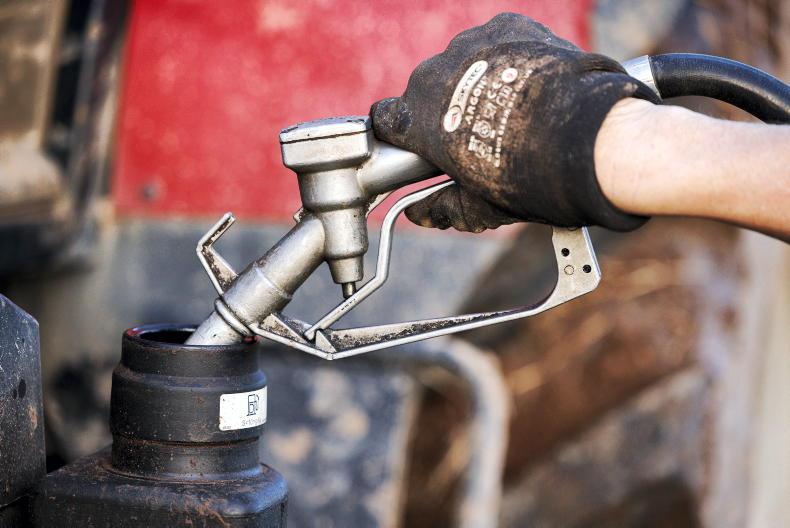This week, we launch our 12th annual Agribusiness report in conjunction with KPMG.
Speaking at the launch on Tuesday, Dawn Meats CEO Niall Browne said he recognises certain challenges at farm, processor and retailer level, but the quality and sustainability of the product we are producing should leave the industry in a good place long-term.
When pushed on whether trade deals that other countries might engage in may undermine our closer markets he said yes, that possibility is there and to a large extent has been there.
Export ban
This week’s announcement to ban live exports of sheep out of Australia from 2028 shows the vulnerability of an island like Ireland: partly dependent on a home processing sector, but also live exports. That balance of competition serves farmers well.
Niall Browne was clearly not as enamoured by the recent successful national PGI application, but with existing grass-fed standards already in place, it is something we should look deeper into.
The beef industry is often talked down when it comes to innovation, but Browne talked about the 400 different products that Dawn launched over the last year as they meet the demands of retailers changing packaging, flavours, packet sizes etc.
What’s also clear from the report and from the discussion at the launch with JP Scally, CEO of Lidl, is that Irish food producers are moving into an era where supermarkets are far more conscious of food security.
This latest twist on food security is too late for the many horticultural producers that have left the business given poor profitability. Money speaks all languages.
Margins have
risen significantly
This week, Lorcan Roche Kelly runs the rule on published results for three fertiliser company financial results during the exceptional period of fluctuation in farmgate nitrogen prices for 2022. It shows that margins rose significantly.
Context is important. Remember, at the time farmers were fearful of not having any nitrogen.
That would have been a much worse scenario than paying over and above market price.
So essentially, the spike in demand worked against farmers as all importing companies rushed to the market to secure product.
Equally, it must be noted that in 2023 when all the fertiliser companies had product on hand at higher purchased prices, demand fell off a cliff.
In the red
The net result – they had to move product at lower than purchase price, so my industry sources suggest these companies will be in the red for 2023.
The irony of the whole thing is the very fact that spreading much less nitrogen might well end up costing some farmers more.
Tonnages sold in 2023 were back at 2009 fertiliser usage levels. It may well help emissions, and maybe water quality, but the reality is it is probably increasing costs at farm level, making farm economic sustainability worse. There is a balance.
Application deadline passes for all
From talking to many advisors and consultants this week, they extolled the virtues of the improved portal for submitting BISS applications.
The last rush seems to have gone well, and online applications have transformed what was once a paper heavy, onerous and detailed application process.
Credit where credit is due, while there are always software improvements possible.
Take a bow Department, advisors and consultants for the weeks of hard work and long hours. Some tillage farmers struggle on crop BISS changes and ACRES and TAMS platforms need work, but that’s for another day.
This week, we launch our 12th annual Agribusiness report in conjunction with KPMG.
Speaking at the launch on Tuesday, Dawn Meats CEO Niall Browne said he recognises certain challenges at farm, processor and retailer level, but the quality and sustainability of the product we are producing should leave the industry in a good place long-term.
When pushed on whether trade deals that other countries might engage in may undermine our closer markets he said yes, that possibility is there and to a large extent has been there.
Export ban
This week’s announcement to ban live exports of sheep out of Australia from 2028 shows the vulnerability of an island like Ireland: partly dependent on a home processing sector, but also live exports. That balance of competition serves farmers well.
Niall Browne was clearly not as enamoured by the recent successful national PGI application, but with existing grass-fed standards already in place, it is something we should look deeper into.
The beef industry is often talked down when it comes to innovation, but Browne talked about the 400 different products that Dawn launched over the last year as they meet the demands of retailers changing packaging, flavours, packet sizes etc.
What’s also clear from the report and from the discussion at the launch with JP Scally, CEO of Lidl, is that Irish food producers are moving into an era where supermarkets are far more conscious of food security.
This latest twist on food security is too late for the many horticultural producers that have left the business given poor profitability. Money speaks all languages.
Margins have
risen significantly
This week, Lorcan Roche Kelly runs the rule on published results for three fertiliser company financial results during the exceptional period of fluctuation in farmgate nitrogen prices for 2022. It shows that margins rose significantly.
Context is important. Remember, at the time farmers were fearful of not having any nitrogen.
That would have been a much worse scenario than paying over and above market price.
So essentially, the spike in demand worked against farmers as all importing companies rushed to the market to secure product.
Equally, it must be noted that in 2023 when all the fertiliser companies had product on hand at higher purchased prices, demand fell off a cliff.
In the red
The net result – they had to move product at lower than purchase price, so my industry sources suggest these companies will be in the red for 2023.
The irony of the whole thing is the very fact that spreading much less nitrogen might well end up costing some farmers more.
Tonnages sold in 2023 were back at 2009 fertiliser usage levels. It may well help emissions, and maybe water quality, but the reality is it is probably increasing costs at farm level, making farm economic sustainability worse. There is a balance.
Application deadline passes for all
From talking to many advisors and consultants this week, they extolled the virtues of the improved portal for submitting BISS applications.
The last rush seems to have gone well, and online applications have transformed what was once a paper heavy, onerous and detailed application process.
Credit where credit is due, while there are always software improvements possible.
Take a bow Department, advisors and consultants for the weeks of hard work and long hours. Some tillage farmers struggle on crop BISS changes and ACRES and TAMS platforms need work, but that’s for another day.










SHARING OPTIONS